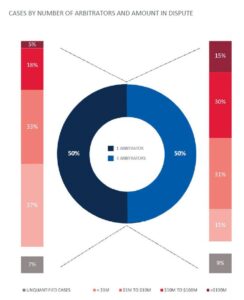In recent years, mass arbitration has emerged as a novel and often controversial tool within United States (U.S.) domestic arbitration. These proceedings occur when a large number of similar individual claims are filed against the same respondent, often a large corporation, creating a high-stakes environment where respondents are forced to either pay substantial administrative fees […]
News
Extending Arbitration Agreements to Third Parties: Principles and Challenges in English Law
The extension of arbitration agreements to third parties is a complex but rigid area of English law. In light of the ever-growing prevalence of intricate multi-party and multi-jurisdiction disputes, courts and arbitral tribunals have found themselves balancing principles of privity of contract with public policy to determine when, why, and how arbitration agreements should be […]
Shareholder Claims for Reflective Loss in Investor-State Arbitration: An Overview
Reflective losses are indirect losses, such as a decrease in the value of the shares, suffered by shareholders as a result of harm to the company in which their shares are held.[1] Reflective losses differ from direct losses suffered by shareholders, which may occur through the seizure of shares or barriers to shareholder attendance of […]
Cartels and International Arbitration
Cartels disrupt market integrity and harm economic players. As companies worldwide face increasing risks from the anti-competitive practices of cartels, international arbitration is emerging as a critical tool for resolving these disputes. Understanding Cartels: The Basics A cartel is an agreement or coordinated action between two or more competitors, typically entities offering similar goods or […]
International Arbitration in Denmark
Denmark offers a robust and internationally aligned framework for arbitration, making it a preferred choice for resolving cross-border disputes. Governed by the Danish Arbitration Act 2005 (the “DAA”), based on the UNCITRAL Model Law, Denmark ensures adherence to global standards of fairness, flexibility, and efficiency. Its legal framework supports both domestic and international arbitration, guaranteeing […]
Which Foreign Investors Could Sue Trump’s United States in Arbitration?
Since taking office for the second time, President Trump has unleashed a torrent of executive orders aimed at reshaping America’s legal and political landscape — from immigration and climate change to trade, civil rights, energy policy, and tariffs.[1] His unpredictable approach to governance has sparked domestic and international concerns, particularly among foreign investors who may […]
Investment Arbitration and the Never-Ending MOL v. Croatia Saga
The intersection of international investment law and domestic politics often leads to high-profile arbitration cases, with the annulment of awards frequently making headlines. One such case is the long-standing dispute between the Hungarian energy company MOL Group and the Republic of Croatia. The saga encapsulates the complex dynamics of investment arbitration, allegations of corruption, and […]
LCIA Arbitration – Latest Update on Costs and Duration
Parties wishing to initiate arbitration often have two key concerns in addition to whether a case has merit: the costs and duration of the proceedings. These concerns were recently addressed by the London Court of International Arbitration (the “LCIA”) in a report published on 30 December 2024, entitled “Facts and Figures – Cost and Duration: […]
2024 CPR Guidelines for Arbitrator Disclosure
In August 2024, the International Institute for Conflict Prevention and Resolution published its Guidelines for Arbitrator Disclosure (the “CPR Guidelines”), aiming to provide arbitrators with practical guidance on preparing their disclosures to avoid potential conflicts of interest. Purpose and Scope As indicated in their preamble, the CPR Guidelines seek to facilitate the arbitrators’ disclosure process, […]








